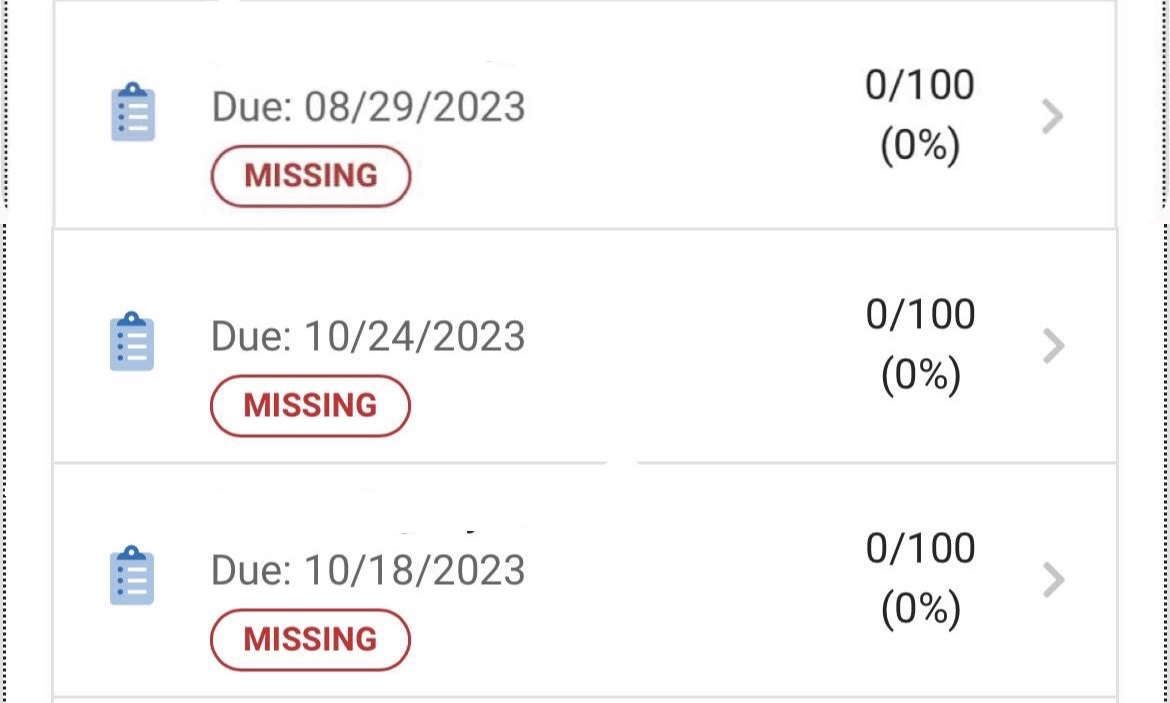An emerging grading policy known as equitable grading has sparked debates across the nation. It seeks to eliminate the current 100-point grading system by taking away penalties for late work and providing limitless opportunities to retake tests and quizzes. The policy prioritizes students’ mastery and understanding of the subject rather than a letter grade. North Atlanta recently implemented a new “no zero” policy, before quickly reversing the decision. The series of events sparked significant debate over equitable grading in the North Atlanta community.
North Atlanta’s grading policies have been all over the place within the past couple of years. During the 2022-2023 school year, students could turn in late assignments up to the last day of each semester. Upon arrival this year a new policy stated that late assignments were automatically marked off 20 points, making the maximum grade an 80. Halfway through this year’s first semester students across Atlanta Public Schools received news of yet another policy. In accordance with equitable grading, APS introduced the “no zero” policy. Under this, teachers could no longer award students zeros. Instead, missing assignments would be put in the grade books as 50s. Even further, teachers were urged to change previous missing grades to accommodate the policy. “I think these policies are going to achieve the opposite of their intentions,” said junior Audrey Egan. “More people are going to stop doing their work and still pass their classes.”
Concern for equitable grading stems from its potential to artificially inflate a student’s grade, thus undermining the reliability of the GPA system. This approach to grading ensures that students can do the bare minimum and still receive a passing grade. Some APS affiliates have coined it akin to the 2013-14 grading scandal, where several thousand students’ failing grades were changed to passing. As a result, the district grades skyrocketed an unprecedented amount.
North Atlanta’s student population met these new expectations with a combination of celebration and sorrow. Some supported the “no zero” policy, seeing it as an opportunity for students who put off completing their assignments to have the potential to redeem themselves despite their tendencies to procrastinate. “It’s not about when you start, but how you finish that matters,” said freshman Brooks Binder. “It demonstrates students’ growth and ability to learn from their mistakes.”
On the other side of things, those who return their assignments regularly and on time may feel cheated by the equitable grading process. “I am diligent with my work, and I think it is important that others learn to be too,” said senior Blair Rubinger. “I don’t see how this policy helps anyone.”
As fast as the “no zero” policy arose, it fell even quicker. Less than a week into its adoption, numerous complaints led to the policy’s demise. The debate over its effectiveness and fairness continues, raising questions about its long-term implications for the education system and short-term implications on students’ education. Does equitable grading leave unethical student behavior unchecked or does it provide students with opportunities to excel?
Administration Switches Equitable Grading Policy Back
Sara Roman, Staff Writer
November 17, 2023
0
More to Discover














